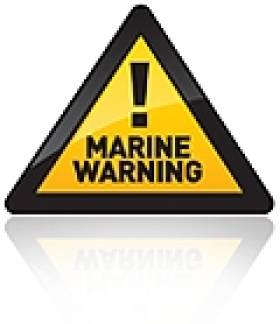Displaying items by tag: seaworthy
Launching? Check Your Boat Maintenance
"Many of the water-based incidents that we deal with at this time of year involve engine breakdown as a result of lack of maintenance," says Garry Hall of the UK's Solent Coastguard. "People report running out of fuel, sometimes because fuel indicators are broken or because fuel can't get through pipes and the engine is starved. Electrical issues are also a frequent problem. Often oxidation happens if engines are laid open to the elements and it affects the wiring. Engines are susceptible to frost so following our cold winter they will certainly need a good service."
Ideally attend a Diesel engine maintenance course, see:
www.rya.org.uk/coursestraining/courses/specialist/Pages/Diesel.aspx
Whilst you're considering maintenance, don't forget to look at your lifejackets and make sure that they are functioning fully. Remove the cylinders and auto-mechanisms, washing them in fresh water. Now inflate the lifejackets using a hand pump, leaving them for 24 hours to make sure that they don't deflate. Then reassemble the lifejacket, ensuring that the cylinder is screwed back in securely. The RNLI have some good advice about how to maintain your lifejacket on their website. Go to www.rnli.org.uk/seasafety
Appropriate and fully functioning communications equipment will be vital should you find yourself in an emergency situation. Have you got all the right equipment?
Check all your existing communication equipment. Ensure your VHF DSC radio unit's MMSI registration is up to date with Ofcom so that the Coastguard has the right emergency contact details. If you have an emergency position-indicating radio beacon (EPIRB) or a personal locator beacon (PLB), replace batteries before they expire and don't just rely on the "test" button. Also ensure the beacon's registration details are up to date so that the Coastguard has the right emergency contact details and correct information for both yourself and your vessel.




























































